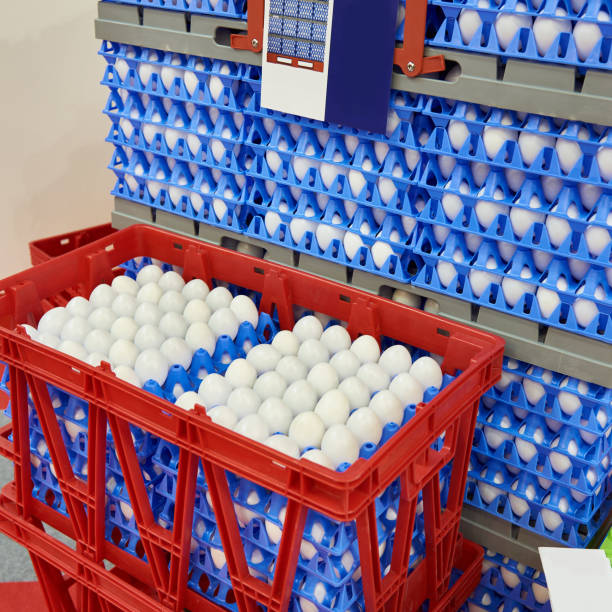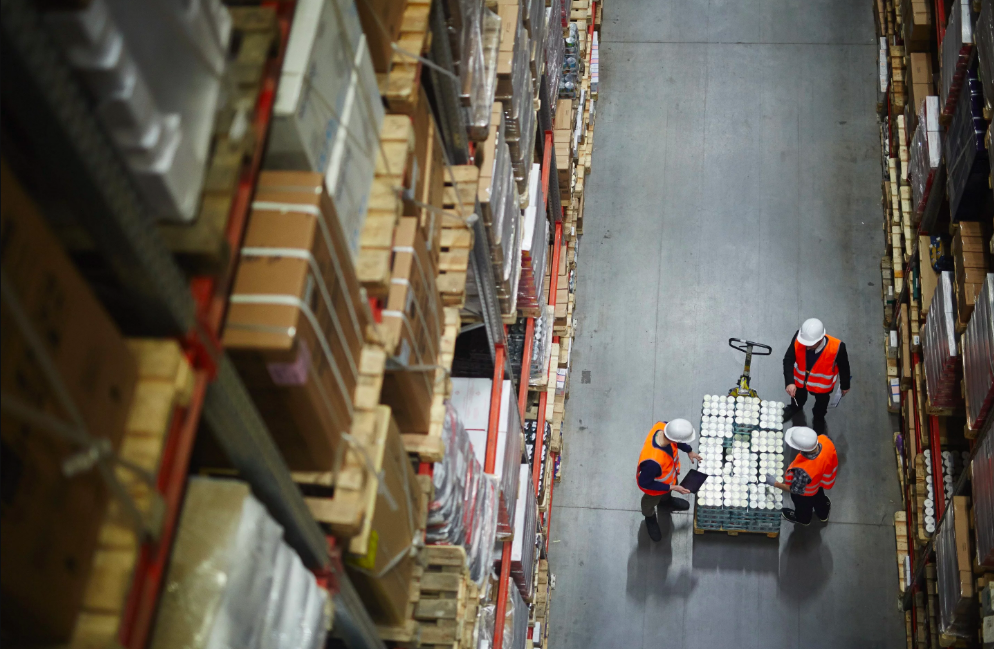The Bureau of Labor Statistics reports that for every 100 workers in the warehouse and storage industry, five suffered a work-related injury or illness in 2016. Of these, 1.7 had to miss days of work as a result, and two were restricted from performing their regularly assigned duties for a period. Considering that in December 2016 there were 968,000 people employed in warehouses and logistics, this adds up to tens of thousands of warehouse workers injured on the job.
At the same time, every year the CDC estimates that 48 million Americans get sick with a foodborne related illness, with 128,000 hospitalizations and 3,000 deaths as a direct result. Clearly, there is room for improvement in both the safety of workers in the supply chain and in the safety of the food those workers are handling. These two sets of statistics overlap in the warehouse, where workers end up injured and palletized food has an opportunity for cross contamination. However, simple changes, like using a lighter weight, more durable, and more sanitary GMA spec plastic pallet, can both reduce warehouse worker injury and make it easier to keep debris and bacteria out of food products. Three important characteristics make high-quality plastic pallets safer than wood for workers and food.
1. Plastic Pallets Are Lighter Than Reusable Wood Pallets
If you work in logistics or manufacturing, you may have thought about how ironic it is that even though pallets are designed to make it easy for forklifts and other machinery to handle heavy loads, they’re often handled by hand. In many warehouses, forklifts are in short supply and staff will use a pallet jack instead. Stacking pallets after they are unloaded is done by hand in this case, and employees may occasionally move emptied pallets without waiting for lifting equipment to become available. Moving a pallet by hand opens up employees to injury, as wood pallets frequently splinter and break during transit and the fragments are sharp enough to cut skin and lodge in flesh. Loose and protruding nails are also common on wood pallets and can cause injury to workers as they maneuver pallets.
Plastic pallets make warehouses safer for employees because, at less than 50 pounds, these lighter pallets are safer to handle by hand.
At 75-80 pounds, reusable wood block pallets are also heavy enough to cause injury solely based on their weight. If you’ve managed warehouse operations then you understand why it happens. Shipping deadlines are tight and there isn’t always lifting equipment available. By stacking emptied pallets for storage by hand, employees are able to free up forklifts to move loaded platforms.
The answer to both these worker injury issues is a plastic GMA spec pallet. Plastic pallets make warehouses safer for employees because, at less than 50 pounds, these lighter pallets are safer to handle by hand. The 20- to 30-pound weight reduction per pallet cuts down on the chances of a serious back or muscle injury. Plastic pallets won’t splinter or break either, and have no nails or other fasteners that could cause cuts or puncture wounds.
2. Plastic GMA Pallets Are Easy to Clean and Sanitize
Plastic pallets aren’t just safer for workers, they’re also safer for food. Since plastic is non-absorbent, it can’t absorb microbes like bacteria and fungi in its structure, and it’s easy to clean using non-toxic sanitizers. This means that food, consumables, and equipment in the supply chain gain the benefit of fewer vectors for bacterial contamination.
Cross contamination is particularly serious in the case of fresh produce like whole fruit and vegetables and bagged greens, since there is usually no kill step for these foods before consumption. This means that, if contaminated, there is a serious chance they will cause illness. The complex, interlinked nature of the grocery supply chain means there is an equally serious chance that the contamination will spread before it is discovered. The best way to avoid contamination is to ensure that the processes and equipment used in the supply chain prevent the introduction and spread of bacteria in food.
A plastic GMA pallet helps with all of the above. As well as resisting moisture, a plastic pallet will not break or splinter as easily as a wood platform, doing away with the slivers of wood that can puncture packaging and introduce bacteria or leave behind wood debris. Being splinter- and debris-free also makes it easier for supply chains that use plastic GMA pallets to keep trucks, containers, and other transportation equipment clean and sanitary.

3. Plastic Pallets Offer More Tracking Options
Not all contamination happens during transit, and as the ongoing outbreak of E. coli in romaine lettuce demonstrates, the source of contamination in the food supply chain is often hard to find. Preventing and containing outbreaks drives the logic behind the Food Safety and Modernization Act (FSMA). The rules laid down by the Food and Drug Administration (FDA) to comply with the act mandate not only procedures to prevent food contamination, but also standards for recording how and when these procedures are implemented in order to better discover the root cause of contamination and remove it from the food supply when it is found.
Switching to pallets that incorporate RFID and barcode tracking technologies means that whether or not you choose to track at the pallet level, your supply chain is future-proofed for a time when this type of tracking may be useful or even mandatory.
With the proper equipment, companies can more easily and precisely track their products through the supply chain. Although adoption of this type of product tracking isn’t mandated yet, in the future, greater visibility at the pallet level may very well play a role in discovering the origin of contaminated food. The technology for this kind of tracking does exist and is available on existing plastic GMA spec pallets in the form of RFID and barcode technology.
These tracking methods are also adaptable, allowing companies to implement the level of tracking that makes sense for them, whether it’s by the truckload or by the individual pallet, and to scale up tracking as needed. Switching to pallets that incorporate these tracking technologies means that whether or not you choose to track at the pallet level, your supply chain is future-proofed for a time when this type of tracking may be useful or even mandatory. To achieve greater employee and food safety through lighter, easier to sanitize, trackable pallets while also reducing your Total Cost of Business (TCOB), choose a plastic pallet pooling system that will provide your company with the pallets you need to keep your supply chain running safely and smoothly.
The iGPS plastic pallet pooling program provides a rugged lightweight plastic pallet that’s easy to handle, easy to sanitize, and incorporates RFID and barcode technology. To make your supply chain safer for your employees and customers, give our team a call at 1-800-884-0225, email a specialist at switch@igps.net, or visit our contact page.



